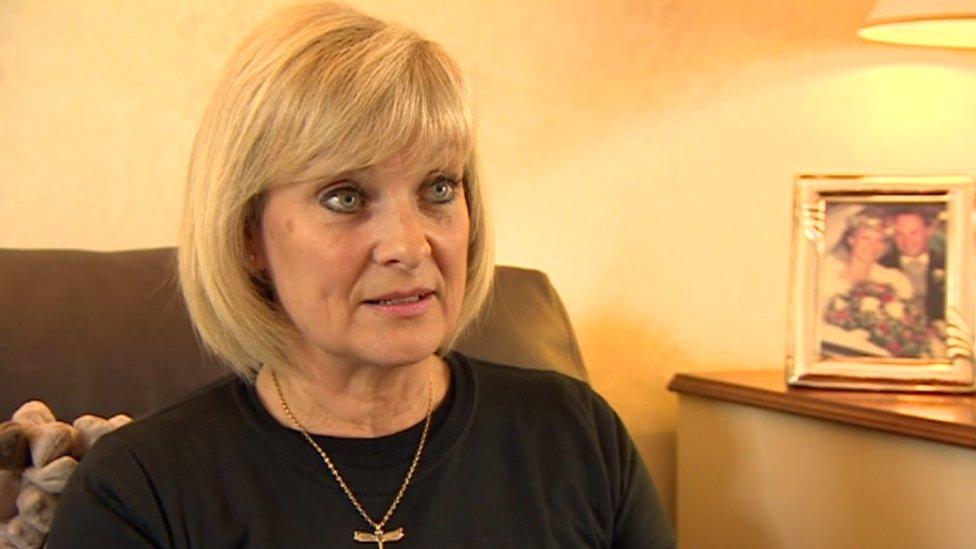Mum who lost daughters to disease now helping others
- Published
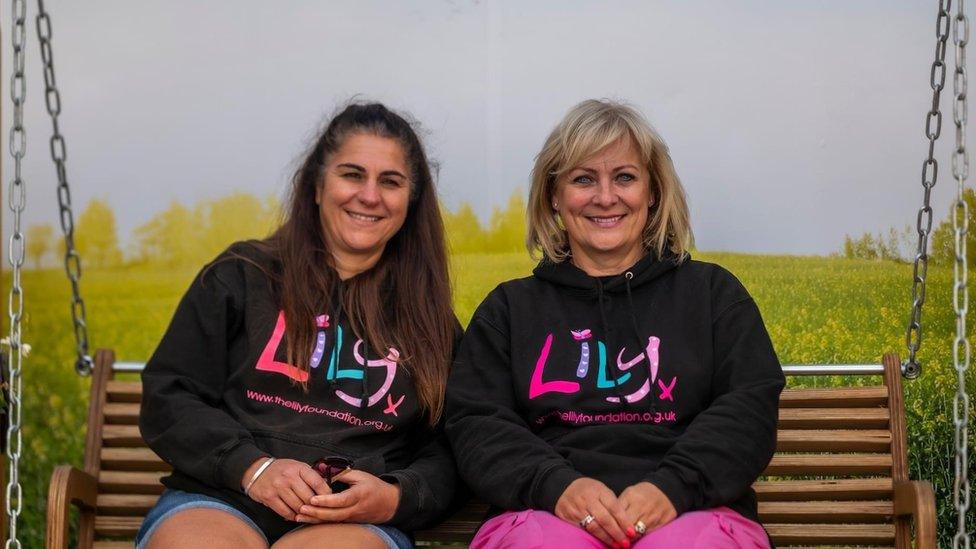
Sarah Moore (right) with founder of the Lily Foundation Liz Curtis
A mother who lost both her daughters to a rare but deadly disease is now helping other families affected by it.
Sarah Moore said there was "no support" when her daughters Harriet and Kimberley died of Mitochondrial disease within six years of each other .
She said: "They say lightning doesn't strike twice but believe me it does."
Ms Moore said hardly anything was known about the condition in 1996 and 2002 when she lost her daughters so support for grieving families was not in place.
It was not until 2018 that she heard about The Lily Foundation which was set-up to support devastated families like hers.
So she then set about fundraising for the foundation and has now joined the team as their corporate fundraiser.
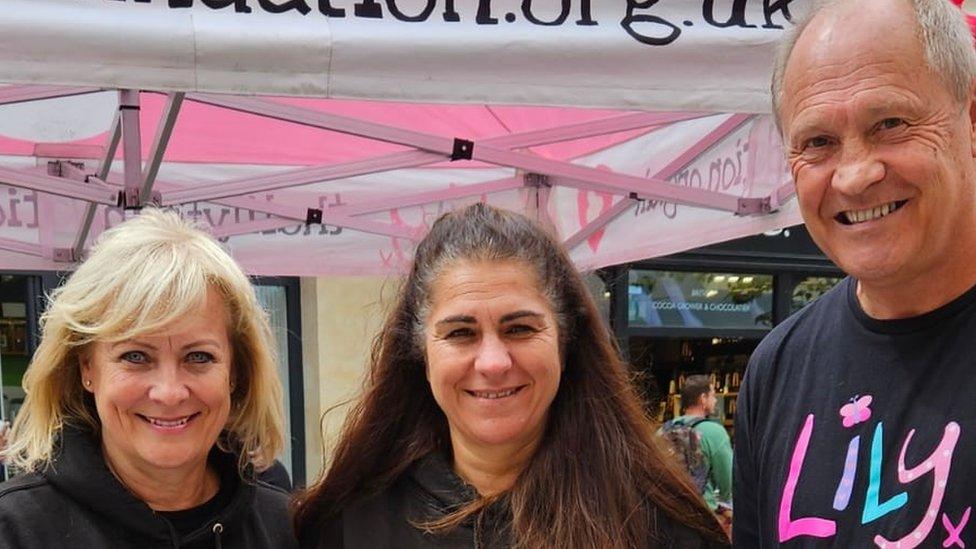
Sarah Moore, Liz Curtis and Sarah's husband Pat are raising awareness of Mitochondrial disease
Ms Moore's daughter Sarah died aged 18 months in 1996 and six years later Kimberley also died of Mitochondrial disease, aged four.
"We were just given the diagnosis that they both passed with Mitochondrial disease…but there was very little known," said Ms Moore, who lives in Bath.
"The medical profession knew very little and we lived a number of years without knowing a lot about the condition at all.
"There was just no charity, no support, we were just left to deal with our grief alone," she added.
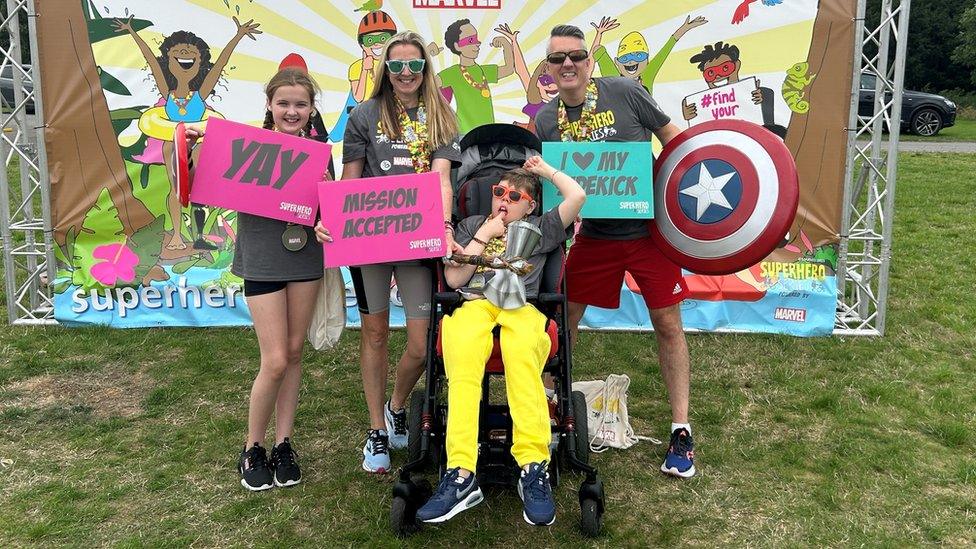
The Keegan family from Swindon is supported by the charity
Liz Curtis founded the Lily Foundation in 2007 in memory of her daughter Lily, who died of mitochondrial disease aged eight months.
"Sarah is incredible. I knew from the first time I met her she would be an incredible team member. It all comes down to her personal experiences, her passion and her desire to make a difference," said Ms Curtis.
She said it was after Lily died, when the family asked for donations instead of flowers at her funeral, that she realised there was nowhere to send the donations.
"People wanted to help, they wanted to raise money, but there was no charity to raise money for," said Ms Curtis.
So she set up the Lily Foundation, which now helps more than 1,000 families across the UK.

What is Mitochondrial disease?
It is a term used for conditions caused by faulty mitochondria.
Mitochondria are responsible for energy production that allows cells to work properly.
The disease can affect different parts of the body, particularly those that require a lot of energy like the brain, heart and liver.
It is genetic, caused by mutations of DNA.
There is no cure but many of the problems associated with it can be treated.
Source: Muscular Dystrophy UK

One of those families is the Keegan family from Swindon.
Claire Keegan's son Max suffers with Mitochondrial disease. Despite huge struggles with his health, including a kidney transplant, he recently celebrated his 16th birthday.
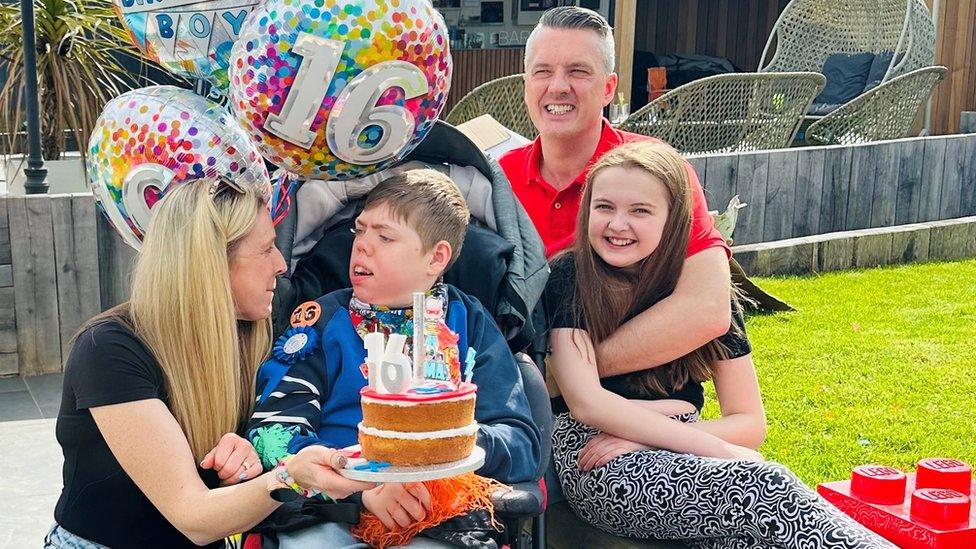
Max Keegan, who has suffered health struggles due to Mitochondrial disease, celebrated his 16th birthday with his family
Ms Keegan said: "Things are hard as a family. It's not easy living with a child with very complex medical needs.
"You do take every day as a lucky day and live in the moment for sure but I think we definitely don't want to look back and have any regrets as a family so we certainly push through.
"Mitochondrial disease doesn't define Max in any way. Yes he has the disease, but it's part of him, it's not him," she added.
The Withers family from Yeovil lost daughter Charlie when she was just two-years-old.
Her mum, Anna Withers, said she knew something was wrong but was not listened to by medical professionals.
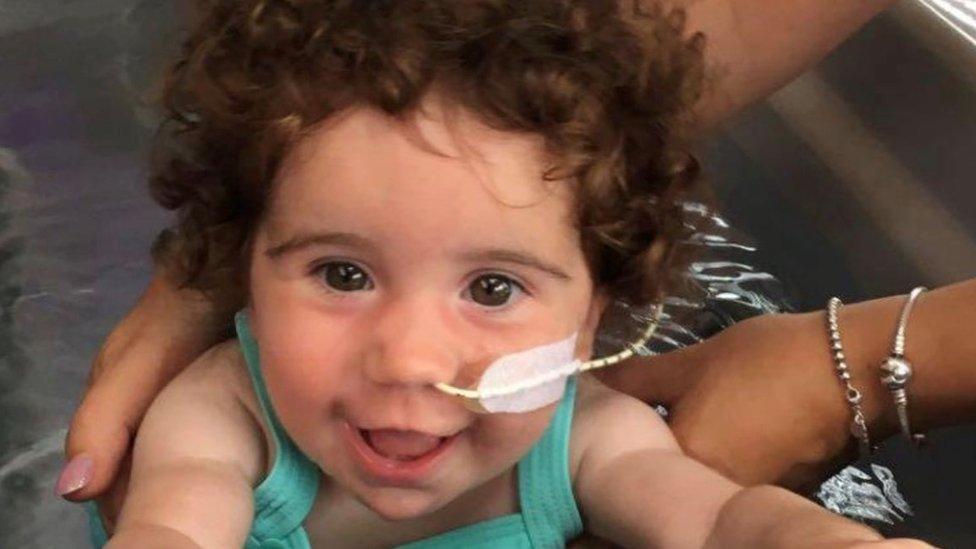
The Withers family from Yeovil lost daughter Charlie at two-years-old
"I was told because I was a first time mum I was probably overreacting and not to compare her to other children, so was dismissed quite a lot," she said.
"It was actually a nurse practitioner who I saw who said to me what do you think? And I said I think there is something wrong and he said right then, then we'll refer you. It was the first time someone had actually listened to me," she added.
Charlie was finally diagnosed with Mitochondrial disease.
Within a year, she had died.
Campaigners say there is a lack of awareness, even in the medical profession, that needs to change.
Clinical nurse, Sue West, from the Rare Mitochondrial Disorders Service, in Oxford, said: "We need to raise awareness for GPs, nurses, A&E teams because they may see people in a crisis, diabetes teams, ophthalmologists when they are looking into peoples' eyes.
"We need to open up people's awareness that this is out there."
One in 200 babies will have some form of the condition and this year's Mitochondrial Awareness Week runs until 24 September.

Follow BBC West on Facebook, external, Twitter, external and Instagram, external. Send your story ideas to: bristol@bbc.co.uk , external
- Published2 March 2023
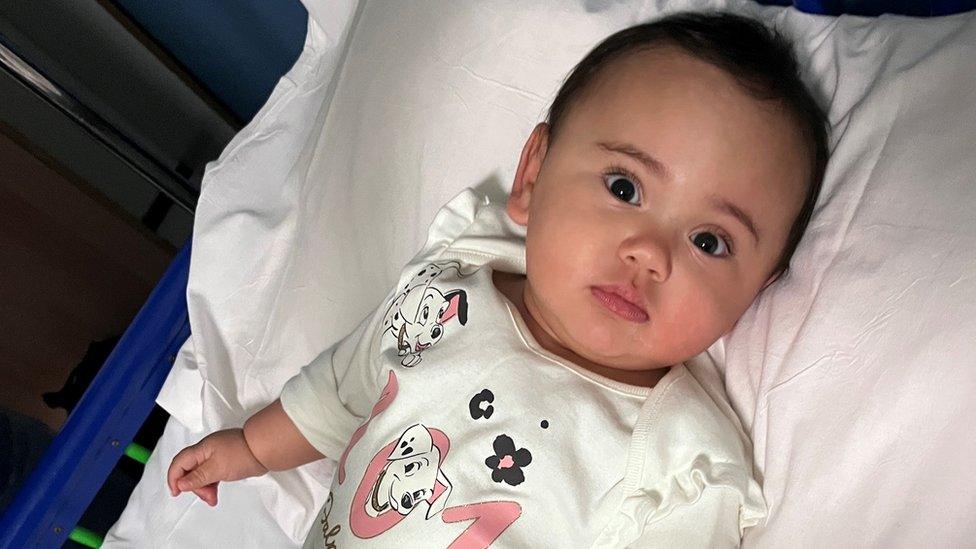
- Published10 January 2021
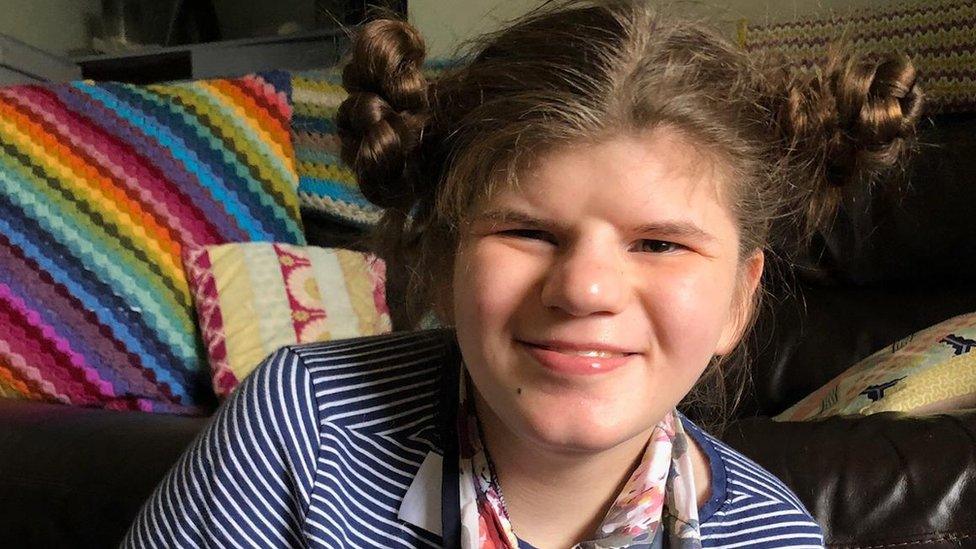
- Published25 March 2019
